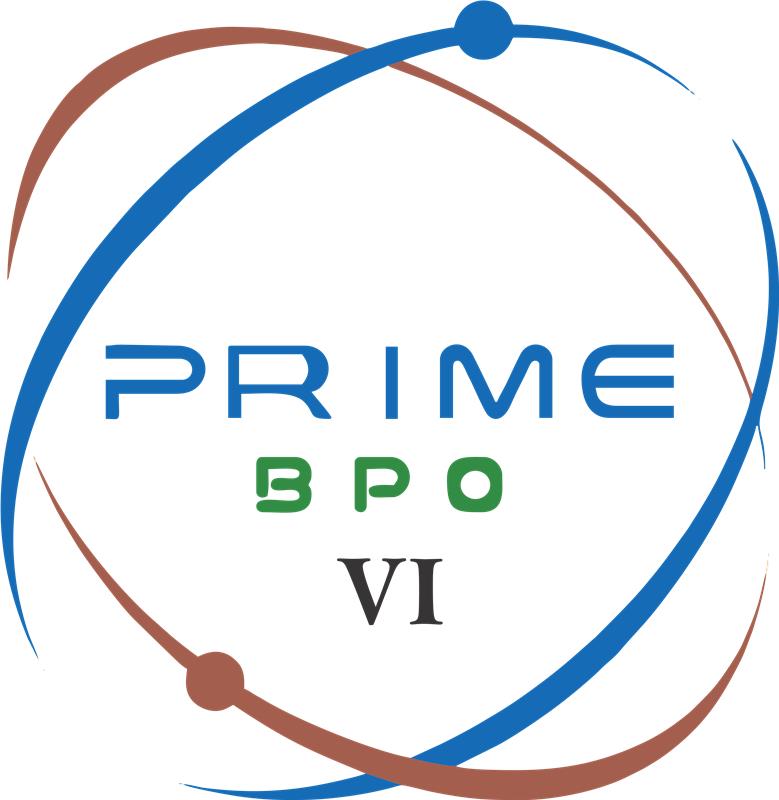Are you curious about the diverse world of call centers? From inbound hubs managing customer inquiries to outbound centers driving sales, there's a plethora of types out there. Which one best suits your business needs? Let's embark on a journey to explore various types of call centers. We'll uncover which one aligns perfectly with your objectives. Are you ready to dive in? Let's start!
What Are Call Centers and Why Do They Matter?
Call centers are crucial hubs in organizations. They handle inbound and outbound customer communication. They employ teams of agents. Agents handle phone calls, emails, and chats. They manage various forms of communication. These agents address customer inquiries, resolve issues, and provide support. The centers are equipped with technology and resources. These are tailored to streamline customer interactions. They ensure efficiency and effectiveness in addressing customer needs.
Get Free Quotes
Customized Options Await
The significance of call centers stems from their pivotal role in customer relationship management. They serve as the primary point of contact between a company and its customers, representing the face and voice of the brand. By delivering prompt, knowledgeable, and personalized assistance, call centers contribute to customer satisfaction and loyalty. Positive interactions with well-trained agents can leave a lasting impression on customers, fostering trust and enhancing the overall brand experience.
Moreover, call centers play a crucial role in driving business success. Customer interactions are valuable touchpoints. They gather feedback, insights, and market intelligence. Call centers can identify emerging trends. They spot preferences and pain points. This enables companies to make informed decisions. They inform product development, marketing strategies, and service improvements.
10 types of call centers and their Functions
Let's delve into the distinctive features and functions of various types of call centers:
1. Inbound Call Centers:
Inbound call centers are the frontline of customer support. They handle incoming calls from customers. Customers seek assistance, information, or issue resolution. These calls can range from product inquiries and technical support to billing questions and complaints. Inbound call center agents are trained to be empathetic, patient, and knowledgeable to address diverse customer needs effectively. Companies may use tools like call routing software. This software directs calls to the most appropriate agent or department. It ensures swift resolution. It also ensures high customer satisfaction levels.
2. Outbound Call Centers:
Outbound call centers make proactive calls to customers or prospects. They do this for sales, marketing, surveys, or appointments. Agents in outbound call centers undergo training in persuasion techniques and product knowledge. This training helps them engage customers effectively. They aim to achieve desired outcomes during the calls. They often work with lead lists or customer databases. They target specific demographics or segments. This maximizes the effectiveness of their outreach efforts.
3. Combined Call Centers:
Combined call centers integrate both inbound and outbound functions within the same facility or operation. This versatility allows organizations to handle a wide range of customer communication needs efficiently. Agents in combined call centers may switch between inbound and outbound roles based on call volumes, campaign priorities, or business requirements, ensuring optimal resource utilization and flexibility in addressing customer demands.
4. Automated Call Centers:
Automated call centers leverage technology to handle routine inquiries or tasks without human intervention, thereby reducing the workload on live agents and improving efficiency. Interactive voice response (IVR) systems, chatbots, and automated email responders are examples of automated call center solutions. These systems use pre-recorded messages, voice recognition, or AI-driven algorithms to interact with customers and provide relevant information or assistance based on their queries.
5. Omnichannel Call Centers:
Omnichannel call centers provide a seamless and integrated customer experience across multiple communication channels, including phone calls, emails, live chat, social media, SMS, and more. Customers can initiate contact through their preferred channel and expect consistent service and information across all touchpoints. Omnichannel call centers use sophisticated technology and data integration to track customer interactions across channels, enabling agents to access relevant context and history to provide personalized and efficient support.
6. Multichannel Call Centers:
Multichannel call centers also support communication across multiple channels, but the channels may operate in silos without seamless integration or synchronization. While customers have the option to interact through various channels, the experience may be less cohesive or interconnected compared to omnichannel setups. Multichannel call centers may still provide effective support but may need help with maintaining consistency and visibility across channels.
7. Virtual Call Centers:
Virtual call centers operate remotely, with agents working from different locations rather than a centralized office. These centers leverage cloud-based technology to facilitate communication and collaboration among remote agents, offering flexibility and scalability while reducing overhead costs associated with traditional brick-and-mortar setups. Virtual call centers enable organizations to tap into a global talent pool, access specialized skills, and adapt to changing business needs more dynamically.
8. In-house Call Centers:
In-house call centers are directly operated and managed by the organization, with agents being employees of the company. This setup provides greater control over operations, quality standards, and brand representation. In-house call centers are typically integrated into the organization's broader structure, allowing for seamless collaboration with other departments and alignment with corporate objectives and values.
9. Outsourced Call Centers:
Outsourced call centers are third-party service providers contracted to handle customer communication on behalf of the organization. Companies opt for outsourcing to leverage specialized expertise, scale operations rapidly, or reduce costs associated with maintaining an in-house call center. Outsourced call centers may operate domestically or internationally, offering a range of services from basic customer support to specialized functions like technical support, sales, or lead generation.
10. Offshore Call Centers:
Offshore call centers are located in a different country from the organization's primary operations and are typically chosen for cost savings or language proficiency advantages. While offshore outsourcing offers cost efficiencies, it can present challenges related to cultural differences, language barriers, and quality control. Offshore call centers require robust communication protocols, cultural sensitivity training, and stringent performance monitoring to ensure alignment with organizational standards and customer expectations.
These types of call centers offers unique benefits and considerations, and businesses must carefully evaluate their needs, goals, and resources to determine the most suitable approach for their customer communication strategy.
Get Free Quotes
Customized Options Await
How to choose the right call center for your business?
Choosing the right call center for your business is crucial for delivering exceptional customer service and maximizing operational efficiency. Here's a step-by-step guide to help you make the best decision when choosing in types of call centers:
1. Identify Your Needs:
Start by assessing your business requirements and objectives. Determine the volume and nature of incoming and outgoing calls, the level of support needed, and any specific features or capabilities required, such as multilingual support, technical expertise, or 24/7 availability.
2. Understand Your Customer Base:
Consider the demographics, preferences, and communication channels preferred by your target audience. Choose a call center that can cater to your customers' needs effectively and provide a seamless and personalized experience across all touchpoints.
3. Evaluate Service Offerings:
Research different call centers and evaluate their service offerings, capabilities, and reputation. Look for providers that offer the specific services you need, such as inbound support, outbound sales, technical assistance, or multichannel communication options.
4. Assess Technology and Infrastructure:
Examine the call center's technology infrastructure and tools, such as CRM systems, IVR solutions, and omnichannel platforms. Ensure that the call center's technology aligns with your business requirements and supports efficient communication, data management, and reporting.
5. Consider Scalability and Flexibility:
Choose a call center that can scale its operations according to your business growth and seasonal fluctuations in call volumes. Ensure flexibility in contract terms, staffing arrangements, and service levels to accommodate changing needs and priorities.
6. Review Performance Metrics:
Request performance metrics and case studies from prospective call centers to assess their track record in delivering quality service, customer satisfaction levels, and adherence to key performance indicators (KPIs). Look for providers with a proven track record of meeting or exceeding industry benchmarks.
7. Evaluate Quality Assurance Processes:
Inquire about the call center's quality assurance processes, training programs, and agent performance monitoring mechanisms. Ensure that agents are adequately trained, monitored, and coached to deliver consistent and high-quality service that reflects positively on your brand.
8. Consider Cultural Fit:
If outsourcing internationally or to a different region, consider cultural compatibility and language proficiency. Choose a call center whose agents can effectively communicate with your customer base and understand cultural nuances to deliver a superior customer experience.
9. Seek References and Reviews:
Request references from current or past clients and seek feedback from online reviews or industry forums. Contact references directly to inquire about their experience with the call center, level of satisfaction, and any challenges encountered during the partnership.
10. Evaluate Cost and ROI:
Compare pricing structures, including setup fees, ongoing service charges, and any additional costs for customized solutions or add-on services. Consider the overall return on investment (ROI) and weigh the costs against the benefits and value provided by the call center in terms of improved customer satisfaction, retention, and revenue generation.
By following these steps and conducting thorough research and due diligence, you can choose the right call center partner from different types of call centers that aligns with your business objectives, values, and customer service goals, ultimately driving success and growth for your organization.
Why are brands opting for contact centers over call centers?
Brands are increasingly opting for contact centers over traditional call centers due to evolving customer expectations and the need for a more comprehensive approach to customer communication. While call centers primarily focus on telephone-based interactions, contact centers offer a broader range of communication channels, including email, live chat, social media, and SMS.
Get Free Quotes
Customized Options Await
Here's why brands are making the shift:
1. Multichannel Communication:
Contact centers enable brands to engage with customers through their preferred channels, whether it's phone calls, emails, or social media platforms. This multichannel approach allows for greater flexibility and accessibility, catering to diverse customer preferences and enhancing the overall customer experience.
2. Omnichannel Integration:
Unlike call centers that operate in isolation, contact centers offer omnichannel integration, ensuring seamless communication and consistency across all touchpoints. This integration enables agents to access customer information and interaction history across channels, providing personalized and contextually relevant support.
3. Enhanced Customer Experience:
Contact centers can deliver a superior customer experience by offering a variety of communication channels and providing personalized support. Customers appreciate the convenience of reaching out through their preferred channel and receiving timely and relevant assistance, leading to increased satisfaction and loyalty.
4. Improved Efficiency and Productivity:
Contact centers leverage advanced technology and automation tools to streamline communication processes and optimize agent productivity. Features like chatbots, IVR systems, and automated routing algorithms help handle routine inquiries efficiently, allowing agents to focus on more complex issues and high-value interactions.
5. Data-Driven Insights:
Contact centers gather valuable data from customer interactions across various channels, providing actionable insights into customer behavior, preferences, and trends. Brands can leverage this data to refine their marketing strategies, improve product offerings, and enhance overall business performance.
6. Scalability and Flexibility:
Contact centers offer scalability and flexibility to adapt to changing business needs and fluctuating call volumes. Cloud-based contact center solutions allow for rapid deployment and scaling of resources, ensuring agility and responsiveness in dynamic market environments.
7. Brand Reputation and Differentiation:
Providing exceptional customer service through contact centers can significantly impact brand reputation and differentiation. Brands that prioritize customer satisfaction and engagement stand out in a crowded marketplace, earning customer loyalty and advocacy over time.
In summary, brands are choosing contact centers over traditional call centers to meet the evolving demands of today's customers, deliver superior experiences across multiple channels, and drive business growth through enhanced efficiency, insights, and brand differentiation.
Conclusion:
As we wrap up our look into the different types of call centers, have you thought about which one best suit your business? Whether you prefer helping customers with their questions, reaching out to new clients, or using various ways to connect, there's a type that suits you. So, which call center will you pick to make your customers happy and boost your business? It's your decision!
FAQs
What type of business is a call center?
A call center is a service-oriented business that specializes in handling inbound and outbound communication on behalf of other companies. It typically provides customer support, sales assistance, technical help, and other forms of assistance via phone calls, emails, chats, and other communication channels. Call centers cater to businesses across various industries, offering tailored solutions to meet their specific communication needs and objectives.






